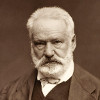“ When the population suffers, when work is lacking, when there is no commerce, the tax-payer resists imposts through penury, he exhausts and oversteps his respite, and the state expends a great deal of money in the charges for compelling and collection. When work is abundant, when the country is rich and happy, the taxes are paid easily and cost the state nothing. ”
Victor Hugo, Les Misérables (1862). copy citation
| Author | Victor Hugo |
|---|---|
| Source | Les Misérables |
| Topic | tax suffering |
| Date | 1862 |
| Language | English |
| Reference | |
| Note | Translation by Isabel F. Hapgood in 1887 |
| Weblink | http://www.gutenberg.org/files/135/135-h/135-h.htm |
Context
“This prosperity created at M. sur M. by Father Madeleine had, besides the visible signs which we have mentioned, another symptom which was nonetheless significant for not being visible. This never deceives. When the population suffers, when work is lacking, when there is no commerce, the tax-payer resists imposts through penury, he exhausts and oversteps his respite, and the state expends a great deal of money in the charges for compelling and collection. When work is abundant, when the country is rich and happy, the taxes are paid easily and cost the state nothing. It may be said, that there is one infallible thermometer of the public misery and riches,—the cost of collecting the taxes. In the course of seven years the expense of collecting the taxes had diminished three-fourths in the arrondissement of M.”
source


